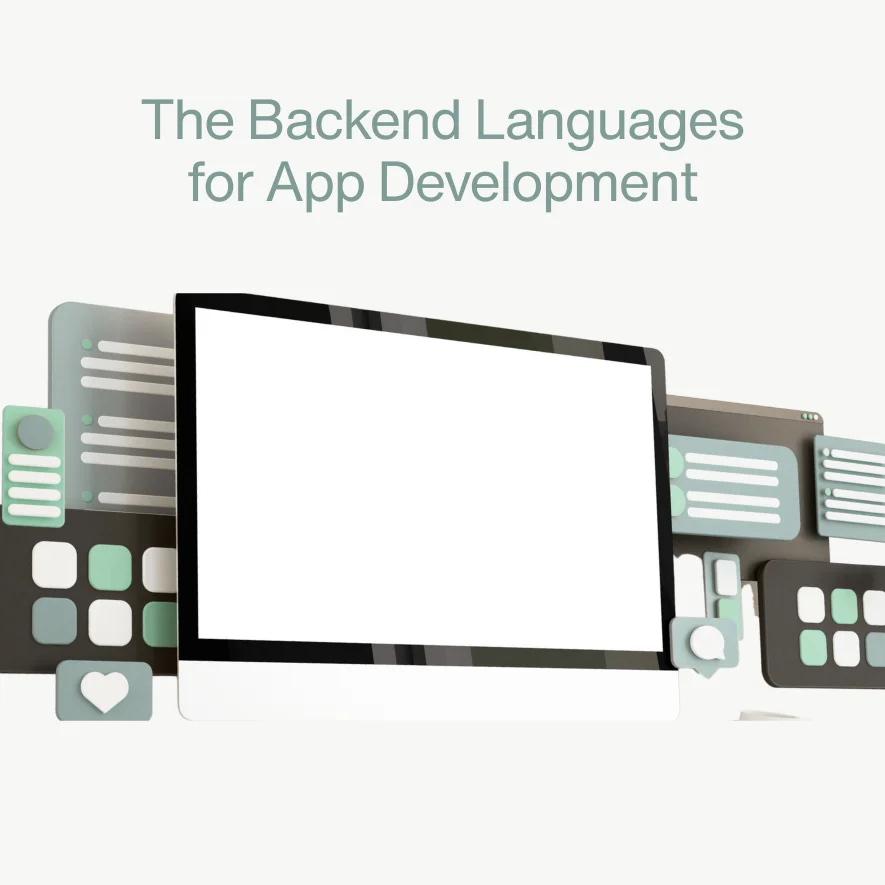The New Era of AI in 2025: From Gemini 3 to Creative AIs
Learn about the best AI tools for 2025, including Nano...
We use cookies for our website to give you the most relevant experience by remembering your preferences. By clicking “accept”, you consent to use of ALL the cookies
This website uses cookies to improve your experience while you navigate through the website. Out of these, the cookies that are categorized as necessary are stored on your browser as they are essential for the working of basic functionalities of the website. We also use third-party cookies that help us analyze and understand how you use this website. These cookies will be stored in your browser only with your consent. You also have the option to opt-out of these cookies. But opting out of some of these cookies may affect your browsing experience.
Necessary cookies are absolutely essential for the website to function properly. These cookies ensure basic functionalities and security features of the website, anonymously.
| Cookie | Duration | Description |
|---|---|---|
| cookielawinfo-checkbox-functional | 11 months | This cookie is set by GDPR Cookie Consent plugin. The cookie is used to store the user consent for the cookies in the category “Analytics”. |
| cookielawinfo-checkbox-functional | 11 months | The cookie is set by GDPR cookie consent to record the user consent for the cookies in the category “Functional”. |
| cookielawinfo-checkbox-necessary | 11 months | This cookie is set by GDPR Cookie Consent plugin. The cookies is used to store the user consent for the cookies in the category “Necessary”. |
| cookielawinfo-checkbox-others | 11 months | This cookie is set by GDPR Cookie Consent plugin. The cookie is used to store the user consent for the cookies in the category “Other. |
| cookielawinfo-checkbox-performance | 11 months | This cookie is set by GDPR Cookie Consent plugin. The cookie is used to store the user consent for the cookies in the category “Performance”. |
| viewed_cookie_policy | 11 months | The cookie is set by the GDPR Cookie Consent plugin and is used to store whether or not user has consented to the use of cookies. It does not store any personal data. |
Functional cookies help to perform certain functionalities like sharing the content of the website on social media platforms, collect feedbacks, and other third-party features.
Performance cookies are used to understand and analyze the key performance indexes of the website which helps in delivering a better user experience for the visitors.
Analytical cookies are used to understand how visitors interact with the website. These cookies help provide information on metrics the number of visitors, bounce rate, traffic source, etc.
Advertisement cookies are used to provide visitors with relevant ads and marketing campaigns. These cookies track visitors across websites and collect information to provide customized ads.
Other uncategorized cookies are those that are being analyzed and have not been classified into a category as yet.
Cyberia Tech, Inc. respects your privacy. This Privacy Policy explains how we collect, use, and share your information. By using our services, you agree to this policy. If any other agreements conflict with this Privacy Policy, the terms of those agreements prevail.
Cyberia Tech complies with the EU-US and Swiss-US Privacy Shield Frameworks for handling personal data from the EEA, UK, and Switzerland. In case of any conflict, the Privacy Shield Principles prevail. Learn more at Privacy Shield. Key Definitions
Information linked to an individual, transferred from the EEA, UK, or Switzerland to the U.S.
Data revealing race, religion, health, sexual orientation, and similar categories.
Effective Date: [ 2026 / 03 / 01 ]
Welcome to The Cyberia Tech ! By accessing or using our website or services, you agree to
comply with and be bound by these Terms of Use and our Privacy Policy. If you do not agree with
these terms, please do not use our Services.
Loading
0 %

Choosing the correct mobile app backend language is undeniably one of the development challenges. It is critical to determine which of them is beneficial.
Because knowing the suitable backend languages for app development is essential to the success of Android and iOS platforms.
Although the user cannot see these processes, they do mention how fast the app is in terms of performance, security, and other features.
As a result, the significance of an app backend development language should be considered.
Throughout the blog, you will learn about each language’s details, pros, and cons to get a better picture and decide how they can help you in this industry.
Table of Contents
We all know the market is primarily divided into iOS and Android operating systems. You know, mobile app backend language is like putting Morse Codes in an intelligent form.
After figuring out the best business plan, you must decide which language will be used to develop the app.
Let’s closely examine each of them: First and foremost, on the Android operating system. Here’s a rundown of each of them.

Javascript is a language that is used in both backend in app development and frontend mobile app development languages. This is the positive point of the language to write the same syntax to reduce the development time.
This also gives developers more flexibility when picking out middleware. Since it works on both sides. Other features include:
An object programming language that offers a clear process in mobile app backend language. Its popularity has propelled it to third place among developers.
Furthermore, it is an excellent choice for backend APIs. As a result, it is the fastest backend language. Some critical elements are:
3. Ruby on Rails
A made-in-Japan programming language has a similar syntax to Java and Python. It is productive cause it supports 3rd party libraries. Learning its language is a piece of the pie and doesn’t need documentation.
It can be called meta-programming cause the entire process is done on the run time. Conversely, the automation option is also helpful for having a functional backend language in web development.

Although it is effective in many cases, it lacks in some parts, such as:
4. PHP
The old servant but still strong in server-side development language. The ease of use, open-source, and multiple usages on different operating systems.
The built-in security offers you outstanding features. The community is excellent and supportive, but you’ll see some buggy codes that are not well-optimized.
5. Java
There are several reasons why Java is a preferred language for building mobile app development. The easy language can shorten the development time and is handy for different operating systems.
Some developers believe Java can be the first choice for developing an Android app. Cause it has:
6. C#
A backend language to build your native app with a single codebase on Android and iOS.
The codes are performed in a fat way. It is also a good option for game development and CLI (Command Line applications). Programs that affect on terminal and shell. Other options are:

7. Perl
The name is unfamiliar, but you can build an app backend development language on it. It is one of the old soldiers of development. It is open-source, supports C and C++ libraries, and text processing functions are helpful. Otherwise, you can’t expect good scalability. Also:
8. C++
The improved version of the C language. The critical thing about C++ is that it has the latest system while maintaining the essential features. Moreover, it is portable in all operating systems. It is a low-level language that doesn’t need a lot of translation. You can manage how the codes access the memory, so management in memory is excellent. Despite all the benefits, the security is not ideal, and you can’t see any garbage data.
9. Kotlin
Kotlin was born in 2011 in Google. It is a backend development language that fixes its place as a competitor over Java. It supports cross-platform development. The features are:
Conversely, you need more valid resources to learn and become an expert.
10. Scala
A language that is usable in complex apps. A high-level and object programing language. It provides you with a massive availability of libraries. The ability of JVM will give you a run-time environment. With this option, the developer has no problem with static types in mobile back-end development. Some of its positive parts are:
All of these mentioned languages have one goal; app backend development language is like modulation in music. They re-style this industry into another expression.
Well, the answer is choosing a proper backend technology is related on:
Remember, before choosing the productivity of the backend language programming, cultivate the requirement and don’t specifically rely on the trends. Do you know popular brands that use these mentioned languages?
what you need to consider is the fact that the backend language for app development is a core part of the backend. It is like a brail code to guide the development process efficiently.
” Don’t comment bad code – rewrite it ”
Which language is best for mobile backend?
Java is mostly a server-side computer language that is used to make strong backend services. However, you can also use Java to make Android apps. There are a lot of reasons why people who want to start making apps should learn Java.
What language is backend of mobile apps?
Java. At first, Java was the main language for Android App Development. Now, Kotlin has taken its place, but Java is still the most popular language. A lot of the apps in the Play Store were made with Java, and Google also supports it the most.
backend refers to how the appearance layer and the data access layer are kept separate. Due to all the great things a backend can do, almost every mobile app has its own backend these days.
Which language is used for Android backend?
Java is, in fact, the most popular computer language for making Android apps. It is also used for a wide range of other computing tasks. The virtual machine that runs on Android devices runs Java code. So, I would suggest that you use Java for developing Android apps.
Is Python good for mobile backend?
Yes, Python is better than other languages for making apps. There are many top computer languages that can be used to make apps. But there are no hard and fast rules for figuring out which language is better for making apps.
Using a proper mobile app backend language is critical in a world where each app has its philosophy.
Each app is prioritized based on its usage. You require a productive and dependable app that can meet the needs of all users.
In this way, you can claim that your backend languages for app development are helpful.
Another thing to consider is using trusted, well-known mobile software to determine which app backend development language is best for your app.
Tell us about your backend programming experiences. Don’t hesitate to contact us for the best alternative and a high-quality development process.
You Can Get More Information!
